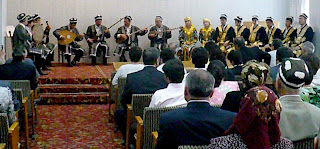UPDATE: Click
HERE for my video on doctoral supervision in music. Since the time of this video, I have been asked to teach for a fourth year of the Doctoral Supervision course (2020, 2021, 2022, 2023) and now serve on new PhD supervisory/examining committees in Denmark (students at two institutions), Lithuania (two students), and starting soon in Uganda and Faroe Islands (from 2023), and China (2024).
It was a great pleasure to serve as one of the four invited panelists for a course yesterday (October 23, 2020) on Doctoral Supervision at University of Bergen,
UPED 691: Becoming a Supervisor: Community, Expertise, Dialogue. Mentoring doctoral students is both an unusually challenging and fulfilling responsibility, as one guides a mature learner toward developing new knowledge as a scholar. It is helpful to provide courses of this kind to young professors, since sometimes those who are appointed as doctoral mentors have expertise in their specialized field but have taken few opportunities to systematically consider various approaches to mentoring. There is now a growing corpus of research on mentoring that can serve as a useful reference for those seeking to improve upon their approaches to doctoral supervision.
In preparation for the panel, I reviewed several recent studies on PhD education, and reflected on my own experience as a doctoral supervisor. In my current job (within a recently merged institution that is seeking full research university status) there have been few opportunities to mentor doctoral students, but I have enjoyed much doctoral supervision in several previous jobs as well as recently through various adjunct (visiting professor) positions in Europe and Asia. In all, I have served on 15 doctoral committees, with universities in 10 countries in Europe, North America, Africa, and Asia. This includes dissertation studies using a variety of research methodologies, from ethnographies, historical studies, surveys and experiments, to philosophical and mixed methods studies. Education and music are fields in which there is much interdisciplinary research, with interesting opportunities to study diverse topics using an array of methodologies and theoretical approaches, which is quite stimulating.
Our panel included some excellent researchers who shared experiences from an array of fields, from natural sciences to higher education, arts and therapy. Around 40 professors--recent hires from all across the university--participated in the course, and I think the four panelists shared helpful anecdotes and recommendations through our discussion and question/answer session. One of the panelists, Sally Barnes from the University of Bristol, especially reminded us of the importance of really knowing ourselves as part of the mentorship process. There are many indications that doctoral programs face increasing pressures that threaten to lower standards, and I think it is in everyone’s interest to ensure that quality and high academic standards are maintained through transparent application of well-conceived policies and procedures. At the same time, it is important that both PhD students and their mentors are given appropriate support using strategies informed by the latest research findings.



























